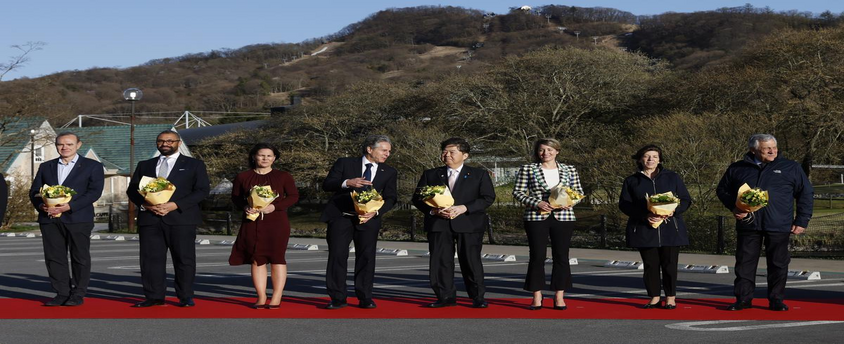G-7 Ministers commit to work for carbon-free electricity by 2035
18, Apr 2023

Prelims level : International Relations
Mains level : GS-II International Relations - Bilateral, regional and global groupings
Why in News?
- Climate and Energy Ministers from G-7 countries have committed to work towards ensuring carbon-free electricity production by 2035 and increasing efforts to phase- out coal.
G7:
- The G7 or the Group of Seven is an informal group of the world’s “most industrialised” countries namely Canada, France, Germany, Italy, Japan, the United Kingdom and the United States.
- The Group was formed in 1975 in the backdrop of the 1973 energy crisis.
- Together the member countries represent 40% of the global GDP and 10% of the world’s population.
- Unlike other bodies such as NATO, the G7 has no legal existence, permanent secretariat, or official members.
- The presidency of G7 meetings is held by each of the seven countries, in turn, each year. The country holding the presidency is responsible for organizing and hosting the meeting.
Highlights:
- The participants further agreed to focus on solar and wind energy investments in order to generate 1,000 GW by 2030 from solar power and 150 GW of wind power from off-shore platforms which are in line with recent reports by the Intergovernmental Panel on Climate Change (IPCC)
- These announcements were made as a part of an agreement by the countries at the end of a conference in Sapporo, Japan, which was held ahead of the G-7 summit in Hiroshima scheduled to take place in May.
- The Union Environment Minister of India also attended the summit as India holding the presidency of the G-20 was invited as a “guest”.
- India in the past during the Conference of Parties (COP)-26 meeting in Glasgow had objected to the use of the term “phase out” and had instead urged for a “phase down” of coal.
- Developing countries like India are still significantly dependent on coal for generating electricity, whereas developed countries, such as the US, Japan, Canada and other European nations are dependent on gas reserves.
- The Indian Environment Minister said that developing countries would require finance, technology and assistance from developed countries for transitioning away from fossil fuels.
- The final agreement of the conference also stated that the countries acknowledge that fossil fuel subsidies are inconsistent with the goals of the Paris Agreement and that phasing out inefficient fossil fuel subsidies is a key component of delivering on the Paris Agreement, which they assure to eliminate by 2025.
- The agreement also notes that the countries had ended new direct government support for unabated international thermal coal power generation by the end of 2021 and public support for the international unabated fossil fuel energy sector in 2022.
Path ahead:
- The Union Environment Minister has remarked that achieving the targets set on carbon neutrality “will not fly” unless they are made to acknowlede the principles of equity and climate justice.
- Experts also believe that stronger and bolder actions are required from the G-7.
- G-7 is expected to step up its climate commitments and demonstrate them in practice.









